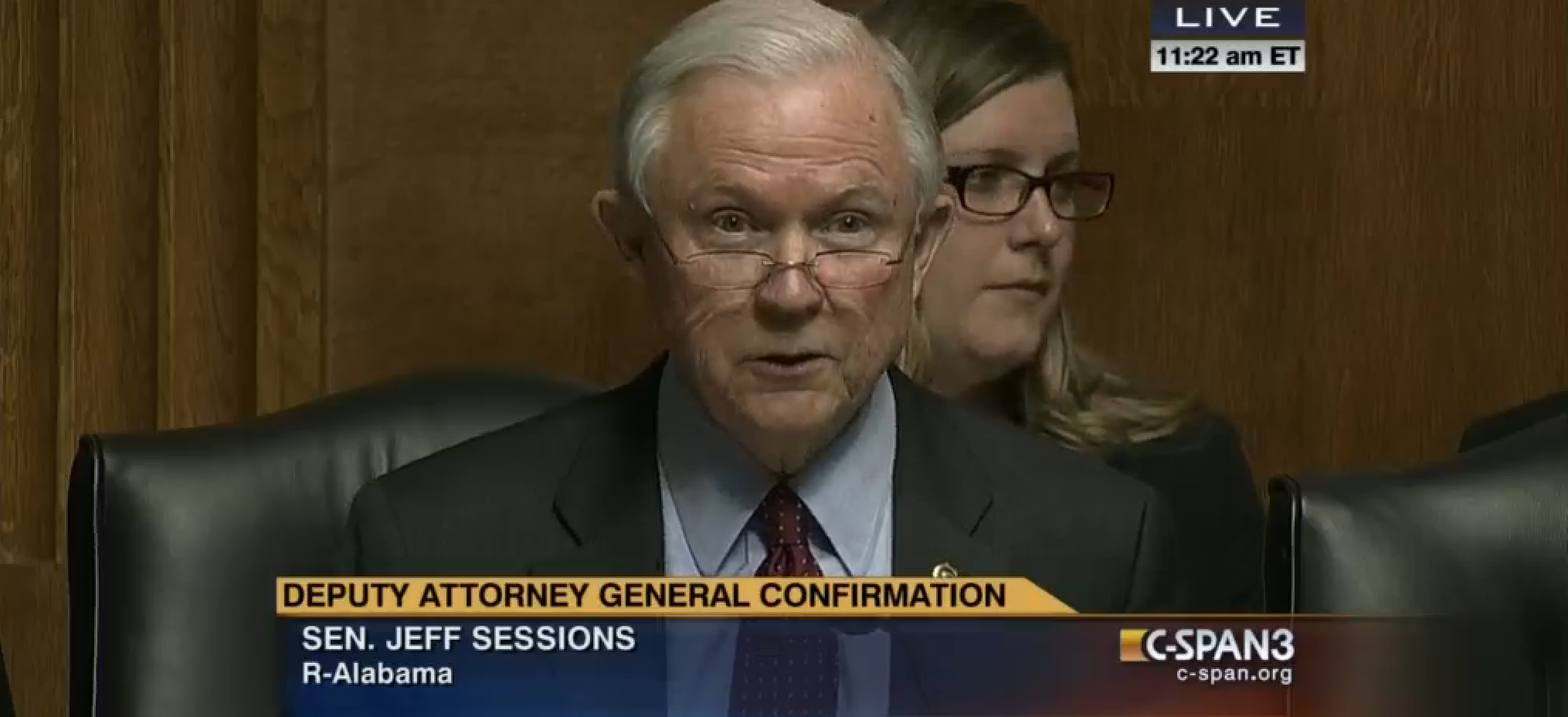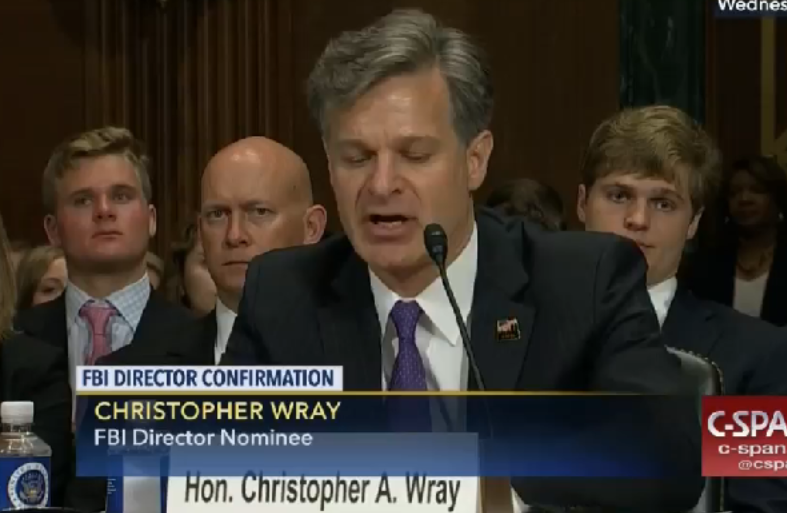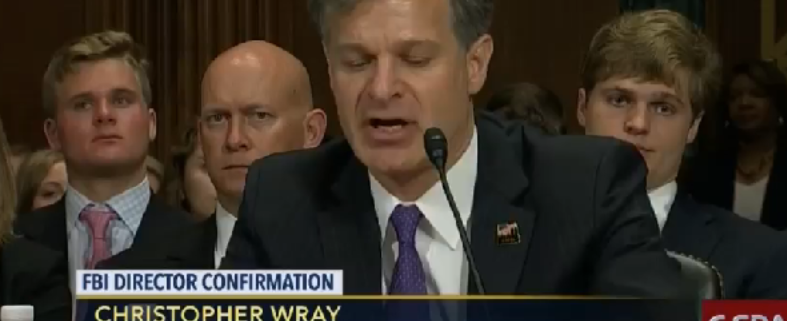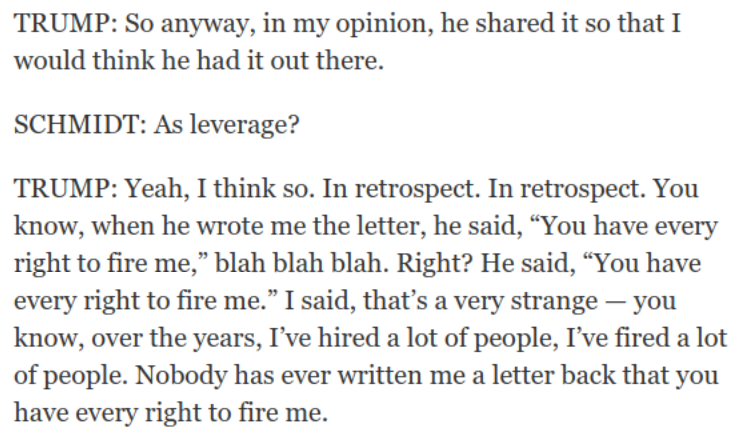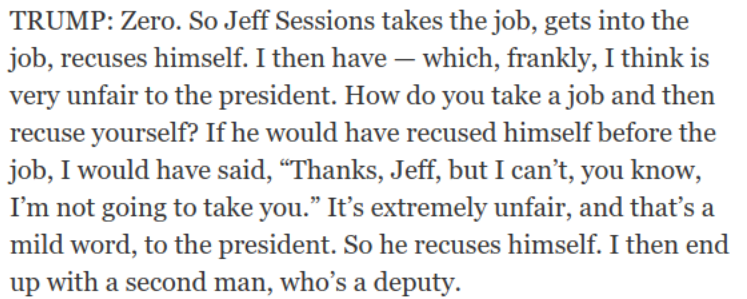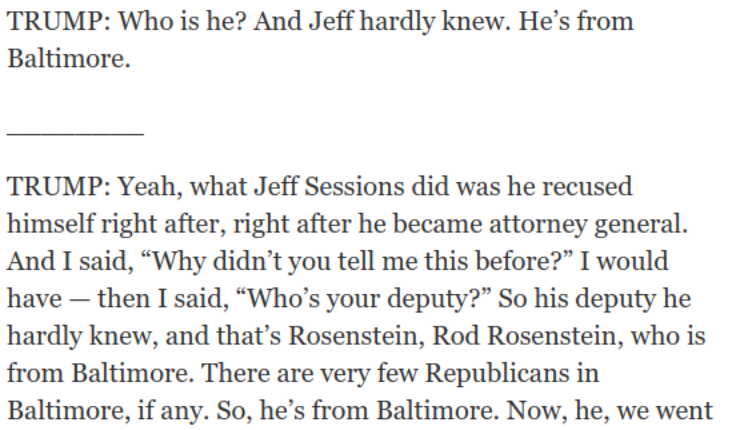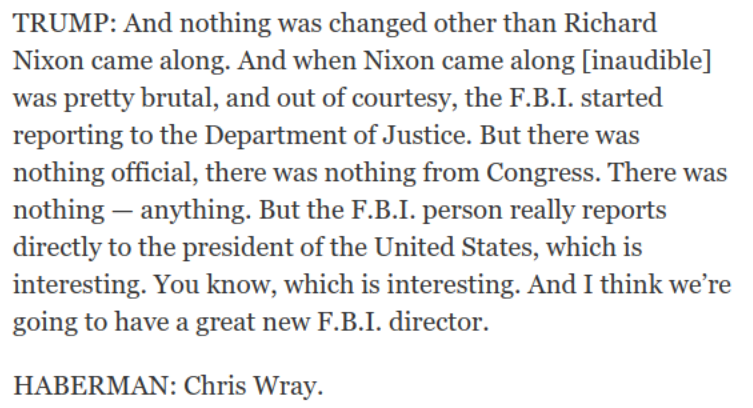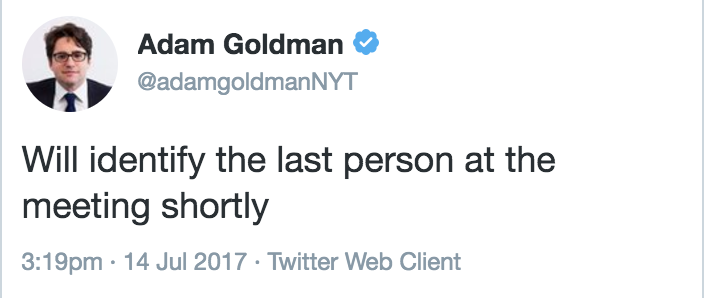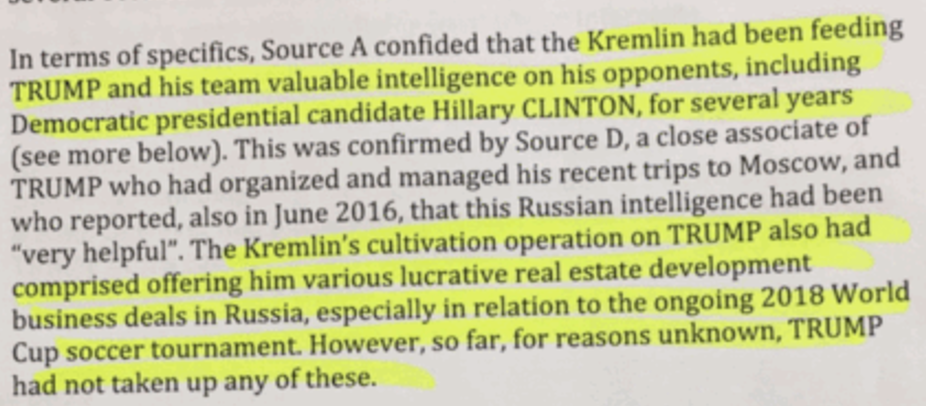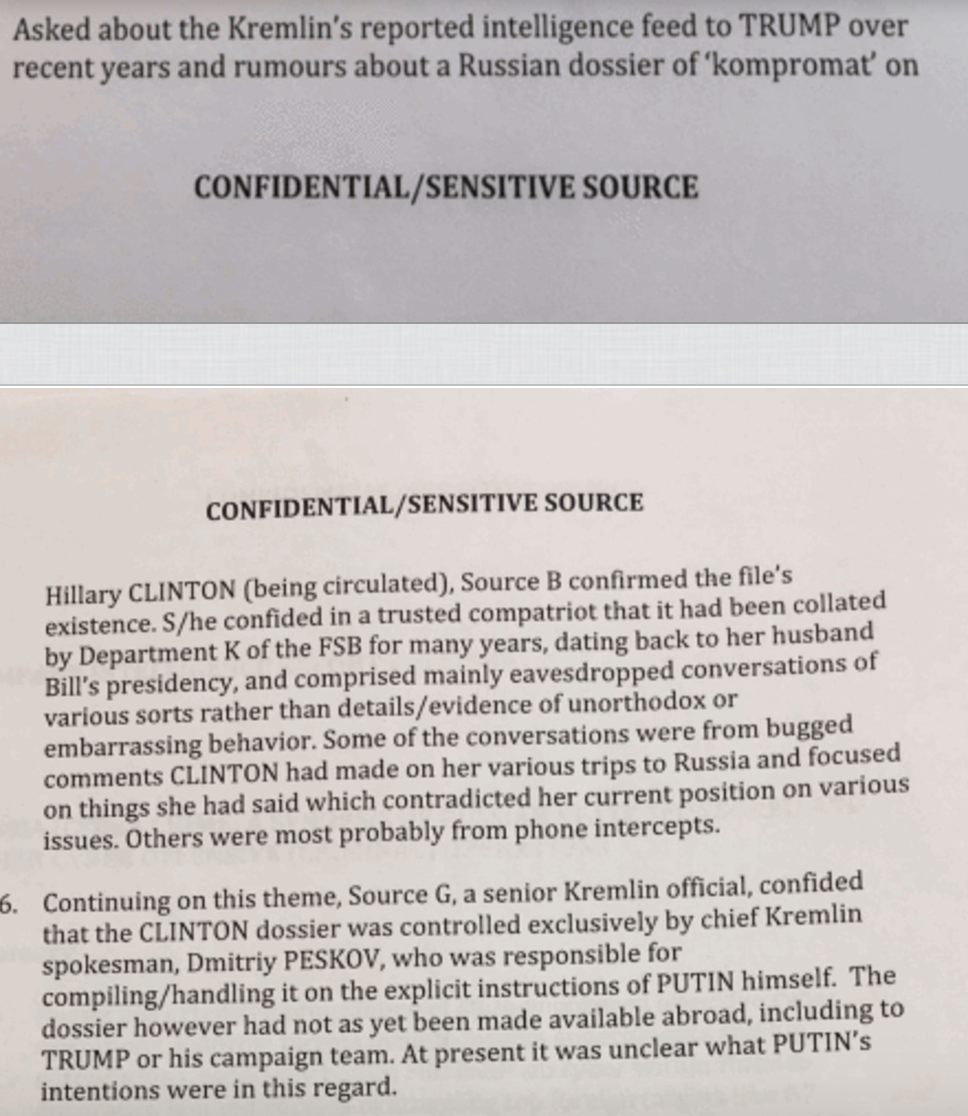Given that he’s already appeared before the Senate Judiciary Committee, it’s a bit late to analyze Jared Kushner’s public statement denying any collusion with the Russians who interfered in last year’s election. But the statement is too nifty to let it pass.
Jared’s lawyers would have you believe he is:
- A young naif in the ways of the world
- Who nevertheless has recall problems
- Who asked to use Russian communications facilities but that’s not a back channel
- And who was undone by his assistant
- But what matters is really the collusion shiny object
A young naif in the ways of the world
Kushner starts by emphasizing over and over how inexperienced he is in the way of politics. Media has never been his job.
First in my business and now in public service, I have worked on achieving goals, and have left it to others to work on media and public perception.
Building companies has been his job, said the guy who is actually better at building debt, with all the possible compromise that might entail.
Before joining the administration, I worked in the private sector, building and managing companies. My experience was in business, not politics, and it was not my initial intent to play a large role in my father-in-law’s campaign when he decided to run for President.
Even in spite of this claimed total inexperience, Kushner came to run key parts of the campaign.
Over the course of the primaries and general election campaign, my role continued to evolve. I ultimately worked with the finance, scheduling, communications, speechwriting, polling, data and digital teams, as well as becoming a point of contact for foreign government officials.
Note how he mentions — but does not emphasize — the data analytics now suspected of helping Russians target voters in MI and WI “as well as” meeting a bunch of foreigners trying to influence pop-in-law’s campaign.
Kushner repeats, again, how inexperienced he is, implicitly blaming those “incredibly talented people” this utterly inexperienced naif reached out to for help.
All of these were tasks that I had never performed on a campaign previously. When I was faced with a new challenge, I would reach out to contacts, ask advice, find the right person to manage the specific challenge, and work with that person to develop and execute a plan of action. I was lucky to work with some incredibly talented people along the way, all of whom made significant contributions toward the campaign’s ultimate success.
In the last paragraph of this section, Kushner turns. This utterly inexperienced campaign kicked the collective ass of 16 other experienced politicians. It did so, Kushner adds just before pivoting to the (Russian) foreigners trying to help the campaign, because Trump’s utterly inexperienced son-in-law nevertheless managed to run one of the best campaigns in history!
Not only did President Trump defeat sixteen skilled and experienced primary opponents and win the presidency; he did so spending a fraction of what his opponent spent in the general election. He outworked his opponent and ran one of the best campaigns in history using both modern technology and traditional methods to bring his message to the American people.
Who nevertheless has recall problems
As Kushner turns to conversations with foreigners, he starts having recall problems — a word used nine different times.
The first, for his brief meeting with Sergey Kislyak and 3 other unnamed Ambassadors at the Mayflower. [all recall emphasis my own]
The first that I can recall was at the Mayflower Hotel in Washington, D.C. in April 2016.
The second, for two calls Reuters has reported that Kushner insists never took place (which I’ll return to).
Reuters news service has reported that I had two calls with Ambassador Kislyak at some time between April and November of 2016. While I participated in thousands of calls during this period, I do not recall any such calls with the Russian Ambassador.
I hope to return to Kushner’s hunt through his own metadata to find these calls.
The third is Kislyak again, whom Kushner remembered but whose name he couldn’t recall five months later.
When the campaign received an email purporting to be an official note of congratulations from President Putin, I was asked how we could verify it was real. To do so I thought the best way would be to ask the only contact I recalled meeting from the Russian government, which was the Ambassador I had met months earlier,
Four, five, and six: the now infamous June meeting that Kushner only recalled when he reviewed the emails with his lawyers.
The only other Russian contact during the campaign is one I did not recall at all until I was reviewing documents and emails in response to congressional requests for information. In June 2016, my brother-in-law, Donald Trump Jr. asked if I was free to stop by a meeting on June 9 at 3:00 p.m.
[snip]
I did not read or recall this email exchange before it was shown to me by my lawyers when reviewing documents for submission to the committees. No part of the meeting I attended included anything about the campaign, there was no follow up to the meeting that I am aware of, I do not recall how many people were there (or their names), and I have no knowledge of any documents being offered or accepted.
The [read and] recall problems here are legally necessary, of course, given that Kushner had not disclosed this meeting on earlier sworn disclosures. So Kushner needs his past lack of recall to be even more credible than his claims not to recall any more meetings.
Number seven is odd. Kushner claims to “recall” meetings with fifty foreigners.
During this period, I recall having over fifty contacts with people from over fifteen countries. Two of those meetings were with Russians, neither of which I solicited.
These fifty contacts, of course, are the ones he failed to disclose on at least the first round of his security clearance form.
In the very next paragraph, Kushner reminds us: the same guy who can recall contacts with fifty foreigners couldn’t recall Kislyak’s name. Number eight.
As I mentioned before, previous to receiving this request, I could not even recall the Russian Ambassador’s name, and had to ask for the name of the individual I had seen at the Mayflower Hotel almost seven months earlier.
All these recalls and failed to recalls lead up to the ninth: the four contacts with Russians revealed in this statement are all that he recalls.
I have disclosed these contacts and described them as fully as I can recall.
Who asked to use Russian communications facilities but that’s not a back channel
Again: Kushner admits to four meetings. In the first he met with a guy whose name he didn’t recall. The second was a meeting that he entirely didn’t recall. Kushner’s failure to recall allows him to make this claim, which (CNN helpfully tells us) was emphasized in the original.
During the meeting, after pleasantries were exchanged, as I had done in many of the meetings I had and would have with foreign officials, I stated our desire for a fresh start in relations. Also, as I had done in other meetings with foreign officials, I asked Ambassador Kislyak if he would identify the best person (whether the Ambassador or someone else) with whom to have direct discussions and who had contact with his President. The fact that I was asking about ways to start a dialogue after Election Day should of course be viewed as strong evidence that I was not aware of one that existed before Election Day. [emphasis original]
Kushner’s failure of recall, then (as well as his claimed ignorance about the recall of any other people, including Mike Flynn and Don Jr), is a key break in the nonsensical chain that divorces any election discussions (which might be proof of a quid pro quo tying Russia’s election season activities to discussions afterwards) from transition discussions.
Consider how implausible it is that Kushner had no — zero!!! — forward-looking policy discussions with foreign officials during the campaign. He’s making this claim not just about Russia, but about all countries: Taiwan, the Emirates, Israel! He’s claiming all of these conversations were about fresh starts, all of them, but none of those fresh starts started before November 8.
Bollocks.
Nevertheless, that bollocks statement allows Kushner to give virgin birth to the conversation — started days after the election — that has now borne fruit, Russia convincing the Trump administration to stop funding the CIA backed rebels and (tacitly, so far) leaving Russia’s client Bashar al-Assad in place.
This is the conversation that Kushner wanted to conduct using Russian, not American, facilities.
Oh, sure. Kushner claims they considered using Russian facilities because there was no “secure line” in the transition office.
The Ambassador expressed similar sentiments about relations, and then said he especially wanted to address U.S. policy in Syria, and that he wanted to convey information from what he called his “generals.” He said he wanted to provide information that would help inform the new administration. He said the generals could not easily come to the U.S. to convey this information and he asked if there was a secure line in the transition office to conduct a conversation. General Flynn or I explained that there were no such lines. I believed developing a thoughtful approach on Syria was a very high priority given the ongoing humanitarian crisis, and I asked if they had an existing communications channel at his embassy we could use where they would be comfortable transmitting the information they wanted to relay to General Flynn. The Ambassador said that would not be possible and so we all agreed that we would receive this information after the Inauguration.
I assume someone has already disproved this statement, the claim there was a SCIF but no secure line in the transition office. It’s absurd in any case: Kushner and Flynn could just get Signal to conduct secret conversations with Russian generals!
Which suggests by “secure” Kushner means a line secure from our own intelligence officials.
You know? A back channel?
I did not suggest a “secret back channel.” I did not suggest an on-going secret form of communication for then or for when the administration took office. I did not raise the possibility of using the embassy or any other Russian facility for any purpose other than this one possible conversation in the transition period.
Uh huh. In any case, Kislyak got the message: while they might have to delay, Kushner and Flynn were willing to carry on that kind of communications with Russian generals. Which Kushner doesn’t seem to connect to the meeting with Sergey Gorkov.
Kushner’s claims about that meeting are even more nonsensical — so much so I’ll have to leave them for their very own post. Suffice it to say Kushner claims a discussion about a bank involved no conversation about banking.
And who was undone by his assistant
Having provided descriptions of the two conversations he had with Russians during the campaign and then provided allegedly dissociated conversations he had with Russians during the transition, Kushner turned to blaming his assistant for all of his disclosure failures on his SF-86.
Except, this explanation only covers his first two SF-86 forms, not the incomplete third form, the one that didn’t include the June 9 meeting.
In the week before the Inauguration, amid the scramble of finalizing the unwinding of my involvement from my company, moving my family to Washington, completing the paper work to divest assets and resign from my outside positions and complete my security and financial disclosure forms, people at my New York office were helping me find the information, organize it, review it and put it into the electronic form. They sent an email to my assistant in Washington, communicating that the changes to one particular section were complete; my assistant interpreted that message as meaning that the entire form was completed. At that point, the form was a rough draft and still had many omissions including not listing any foreign government contacts and even omitted the address of my father-in-law (which was obviously well known). Because of this miscommunication, my assistant submitted the draft on January 18, 2017.
That evening, when we realized the form had been submitted prematurely, we informed the transition team that we needed to make changes and additions to the form. The very next day, January 19, 2017, we submitted supplemental information to the transition, which confirmed receipt and said they would immediately transmit it to the FBI. The supplement disclosed that I had “numerous contacts with foreign officials” and that we were going through my records to provide an accurate and complete list. I provided a list of those contacts in the normal course, before my background investigation interview and prior to any inquiries or media reports about my form.
Between the time difference and more travel within Oz, I’m not sure whether NYT has fact-checked this claim yet, which I believe to be false given their reporting.
What’s certainly true is this statement makes it clear that Kushner didn’t get the June 9 meeting on his form before his first security clearance interview.
A good example is the June 9 meeting. For reasons that should be clear from the explanation of that meeting I have provided, I did not remember the meeting and certainly did not remember it as one with anyone who had to be included on an SF-86. When documents reviewed for production in connection with committee requests reminded me that meeting had occurred, and because of the language in the email chain that I then read for the first time, I included that meeting on a supplement.
What’s also true is Kushner pretends it is normal to have someone playing a key foreign policy role for six months with nothing but an interim clearance.
That is, what Kushner doesn’t address here is that his inability to disclose who he spoke with and why has left the US exposed to potentially unaccounted influence operations.
But what matters is really the collusion shiny object
In short, Kushner’s narrative is not only unconvincing, but it is internally inconsistent.
Which may be why Kushner ends his statement with another big bolded passage, this one disclaiming any knowledge of “collusion.”
It has been my practice not to appear in the media or leak information in my own defense. I have tried to focus on the important work at hand and serve this President and this country to the best of my abilities. I hope that through my answers to questions, written statements and documents I have now been able to demonstrate the entirety of my limited contacts with Russian representatives during the campaign and transition. I did not collude, nor know of anyone else in the campaign who colluded, with any foreign government. I had no improper contacts. I have not relied on Russian funds to finance my business activities in the private sector. I have tried to be fully transparent with regard to the filing of my SF-86 form, above and beyond what is required. Hopefully, this puts these matters to rest.
It’s very earnest, this paragraph from a guy whose statement makes himself look totally unqualified for his role in the White House, hoping to put this matter behind him so he can get on with providing those inadequate skills to the country.
Three times in the paragraph to supplement the nine invocations of his limited recall, Kushner expresses hope, but no confidence, he has covered everything.
I hope … I have now been able to demonstrate the entirety of my limited contacts
I have tried to be fully transparent
Hopefully, this puts these matters to rest.
Amid this message of service and hope, however, Kushner is offering a great big shiny object.
As Jim Comey (a far more qualified civil servant than Kushner, whom Kushner personally pushed to be fired for that service) said months ago, FBI is not assessing whether there was “collusion” here. The term is legally meaningless. What they’re looking for is “coordination,” the kind of coordination you might find in a discussion about capitulating to Russian policy in Syria — even setting up a back channel to do so — in the immediate wake of an election decided with the help of those same Russians.
There’s plenty of evidence to support that kind of coordination in this statement.



